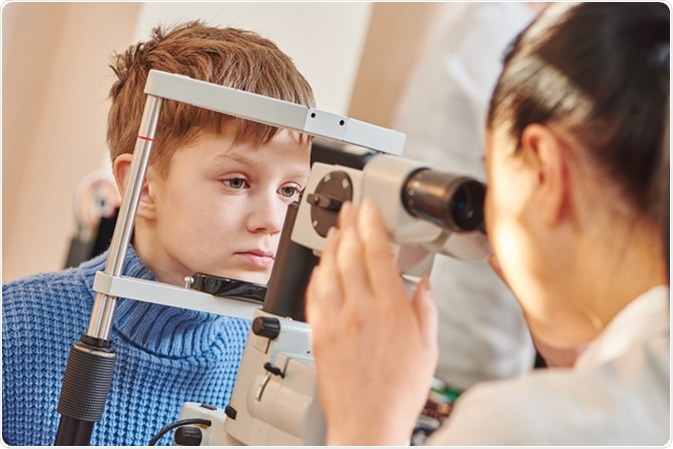Andalusia Eye Center: Introducing Vision Care for Area Wellness
Andalusia Eye Center: Introducing Vision Care for Area Wellness
Blog Article
Is Refractive Surgical Procedure Right for You? Elements to Consider for Better Eyecare
In the world of eye care, the decision to undergo refractive surgical procedure is a substantial one that requires thoughtful factor to consider. From the ins and outs of one's eye health and wellness to the intricacies of individual assumptions and everyday practices, each aspect holds importance in the broader landscape of refractive surgical treatment candidacy.
Eye Health And Wellness Evaluation
When taking into consideration refractive surgical treatment, an extensive eye health examination is vital to assess the viability of the treatment for each and every individual. eye center andalusia. This examination entails a series of examinations and assessments carried out by an eye treatment specialist to determine the total wellness of the eyes, the visibility of any kind of underlying conditions, and the stability of the refractive mistake
Throughout the examination, various factors are considered, such as the client's clinical background, existing eye prescription, corneal thickness, pupil dimension, and tear film top quality. These assessments assist to recognize any type of contraindications to refractive surgical procedure, such as corneal problems, cataracts, or unattended eye infections. In addition, the analysis assists to take care of individual assumptions relating to the prospective end results of the surgical procedure based on their distinct eye attributes.
Ultimately, the eye health analysis is important in making sure the security and efficiency of refractive surgical treatment, as it supplies beneficial understandings into the person's eye health and wellness status and assists figure out the most appropriate treatment alternatives for achieving optimum aesthetic end results. (neurologist andalusia)
Lifestyle Analysis
A complete way of living assessment is important in figuring out the suitability of refractive surgical procedure for a person's visual improvement demands. Way of living variables such as line of work, pastimes, and day-to-day tasks play a crucial function in the decision-making process relating to refractive surgical procedure. People with occupations that involve a high degree of physical task or exposure to ecological components might have various visual requirements contrasted to those with sedentary desk jobs. Recognizing exactly how a person's way of living might impact their vision post-surgery is important for managing expectations and ensuring ideal results.
Furthermore, way of life habits such as sporting activities engagement, exterior tasks, or even skin care regimens can influence the recovery procedure and overall success of refractive surgical procedure. By performing a detailed way of living analysis, eye treatment professionals can tailor their referrals and treatment strategies to satisfy the unique needs of each individual, eventually leading to boosted aesthetic outcomes and satisfaction.
Expectation Alignment

Clients need to understand that while lots of individuals attain 20/20 vision or far better adhering to refractive surgery, some may still call for glasses for certain tasks like analysis or driving at evening. Managing these assumptions helps avoid dissatisfaction and discontentment post-surgery, leading to a much more favorable general experience for the individual.
Danger Analysis

Elements that may increase the threat of complications consist of age, certain clinical conditions like autoimmune illness, unpredictable vision prescription, thin corneas, and unrealistic client assumptions. Furthermore, selecting a experienced and knowledgeable doctor, following pre and post-operative care guidelines carefully, and revealing any appropriate case history can aid minimize threats.
To decrease the possibility of issues, eye doctors perform comprehensive pre-operative examinations to identify any kind of contraindications to surgical treatment. They also go over the possible threats and benefits with individuals during the assessment process. By taking part in open communication and shared decision-making, both the eye doctor and the individual can collaborate to determine if refractive surgical procedure is the best choice based on private risk accounts and preferred results.
Appointment Importance
Taking into consideration the critical function of notified decision-making in examining threats and potential complications in refractive surgery, the appointment process holds considerable relevance in directing people towards ideal outcomes. During the assessment, the ophthalmologist evaluates the person's eye wellness, refractive errors, and overall suitability for surgical treatment. This initial assessment is essential in figuring out the most ideal treatment for each and her comment is here every person, thinking about elements such as corneal density, pupil size, and existing eye problems.
Additionally, the appointment works as a chance for patients to review their expectations, concerns, and any type of questions they may have relating to the surgical treatment. Clear communication between the patient and the surgeon is important to make sure practical assumptions and a complete understanding of the possible dangers and benefits involved.
In addition, the consultation permits the specialist to discuss the various surgical choices available, their respective end results, and the post-operative care called for. This extensive discussion equips patients to make knowledgeable decisions concerning their eye treatment, bring about much better contentment and results post-surgery.
Conclusion
To conclude, individuals considering refractive surgery ought to undergo a comprehensive eye health evaluation, assess their lifestyle behaviors, straighten their expectations with potential results, examine the connected threats, and prioritize appointments with eye care specialists. These variables play a vital role in establishing the viability of refractive surgical treatment for each and every individual, guaranteeing optimal outcomes and satisfaction with the treatment.
Individuals thinking about refractive surgical procedure usually have high expectations concerning the outcomes, expecting perfect vision without the need for glasses or get in touch with lenses. While refractive surgery can significantly enhance vision and decrease dependence on visual aids, it is important for individuals to recognize that results may vary based on private elements such as the degree of my review here refractive error, corneal thickness, and total eye health and wellness.
By engaging in open interaction and shared decision-making, both the ophthalmologist and the patient can function together to figure out if refractive surgical treatment is the best selection based on specific risk accounts and desired end results.
Thinking about the important role of notified decision-making in examining risks and potential difficulties in refractive surgical procedure, the assessment process holds considerable relevance in directing clients towards optimal outcomes. During the consultation, the eye doctor reviews the patient's eye health, refractive mistakes, and total viability for surgical treatment.
Report this page